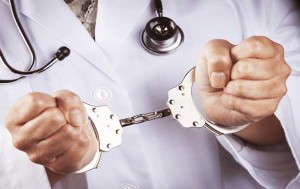‘Res ipsa loquitur’ in medical negligence legal practice
 When the harm is made (physiological or non-pecuniary damage) and the claim is filed, as a rule the claimants are pursuing the goal of getting compensation. To win the case the claimant must prove that there was negligence on the part of the doctor. And this is a tough mission when the doctor is a recognised professional in the business. In this case the courts adjudicating on such claims often refer to ‘res ipsa loquitur’ doctrine, assuming that there was an episode of negligence in the accused party actions. If the defendant can not deny this fact, it is considered that the plaintiff had proved his innocence. The doctrine is widely used in the jurisprudence of the European countries: let’s recollect one of the most resonant cases, pure medical negligence solicitors clashes - Lindsay v. Mid Western Health Board.
When the harm is made (physiological or non-pecuniary damage) and the claim is filed, as a rule the claimants are pursuing the goal of getting compensation. To win the case the claimant must prove that there was negligence on the part of the doctor. And this is a tough mission when the doctor is a recognised professional in the business. In this case the courts adjudicating on such claims often refer to ‘res ipsa loquitur’ doctrine, assuming that there was an episode of negligence in the accused party actions. If the defendant can not deny this fact, it is considered that the plaintiff had proved his innocence. The doctrine is widely used in the jurisprudence of the European countries: let’s recollect one of the most resonant cases, pure medical negligence solicitors clashes - Lindsay v. Mid Western Health Board.
Plaintiffs sometimes turn to the doctrine of ‘res ipsa loquitur’ in connection with the fact that in many cases, the harm, just like the guilt of doctors, may be very difficult to prove. It is most effective in matters where the damage is caused as a result of accidents involving special technical means or in cases where the damage was caused by the applicant at the moment when he passed a complicated process. The doctrine applies only when the plaintiff cannot accurately determine the nature of negligence as a result of which he was harmed and if the accused fails to provide any explanation as to how the damage was caused. The harm itself is classified as such that ‘couldn’t have been caused in normal circumstances, but only in the presence of negligence’. Thus in the case of causing neurological damage that followed, after a complicated aortography argument on ‘res ipsa loquitur’ was rejected on the grounds that the damage has been recognised as an unavoidable risk of the procedure. Frequent use of this doctrine in medical matters is highly relevant in view of the difficulties sometimes experienced by a patient upon detection of damage caused to him as a consequence of procedures in which the plaintiff’s competence is insufficient and at the time that he could be in a state of unconsciousness.
Furthermore, res ipsa loquitur can be seen as opposition to ‘corporate solidarity’ under which many doctors support their colleagues, even knowing that they have committed a crime. However, this doctrine may be less important in an increasingly transparent medical practice. You should always keep in mind the fact that courts are generally reluctant to apply the principle of res ipsa loquitur and it is clear from the English case in which the judge Mego said, ‘if we take the view according to which the criminal negligence inevitably occurs when something went wrong, then very few dentists, doctors and surgeons could be conscious, competent and accurate and unjust accusations of criminal negligence could follow even more than once during the career’.
The unsuccessful attempt to use the doctrine of res ipsa loquitur was made in Ludlov v. Swindon Health Authority case, in which it was emphasised that the plaintiff had to present evidence that would have been cause for initiation of proceedings of criminal negligence. In this case, the plaintiff stated that she came to consciousness during surgery and experienced a lot of pain. However, the fact has failed to be proven; respectively, anesthetic negligence didn’t take place.
